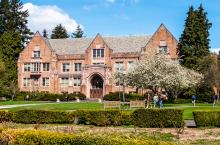The North American Computational Linguistics Open (NACLO) Competition
NACLO organizes contests across the US and Canada in which middle school and high school students solve linguistics puzzles. No prior knowledge of linguistics or languages is necessary to solve the problems - just logic skills.
Professionals in linguistics and natural language technologies create engaging problems for the NACLO competitions using languages from around the world. The competition attracts top students, many of whom choose later on to study and work in the field.
Interested?
- Try out some problems from prior NACLO competitions and International Olympiads.
- Read about linguistics and natural language processing.
- Explore the world's languages on the web.
Competition Dates
- Open Round: The Open Round competition is on Thursday, January 23, 2025, 9:00 am — 12:00 pm. Seattle and Puget Sound area students will compete at the University of Washington Seattle Campus in Thomson Hall, THO 125.
- Invitational Round: The top ten percent of Open Round performers nationwide will be invited to participate. The Invitational Round competition will take place on Thursday, March 13, 2025, 9:00 am — 1:00 pm in Guggenheim Hall Room 415L on the University of Washington Seattle Campus.
- International Olympiad: Eight students will be selected to represent the United States at the 22nd International Linguistics Olympiad to be held in Taipei, Taiwan in July 2025.
Registration
The NACLO registration page is available on NACLO's Website. On the registration form choose “University of Washington (Seattle, WA)” as the ‘site’. In the Seattle and Puget Sound area, NACLO is organized by the Department of Linguistics at the University of Washington. The local organizers are Jim Hoard (jeh20@uw.edu), Karoliina Kuisma (kuisma@uw.edu), and Luke Zettlemoyer (lsz@cs.washington.edu).
NACLO 2025 is sponsored by the National Science Foundation, The Linguistics Society of America, The North American Chapter of the Association for Computational Linguistics, Carnegie Mellon University, and Yale University.
